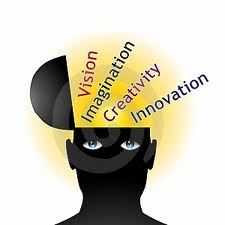Home study - to learn more, and more effectively
Challenge Europe was set up in 2002 to complete an inadequate offering of events and courses for young people that I and my colleagues were experiencing in our environment. Although I had had no direct experience of home study, I was working for a Logistics and Industrial Marketing school which was going through the throes of redoing its pedagogical concepts just as Challenge Europe got going. I was particularly involved in checking out which companies could offer our students e-learning, through which we could reduce, or completely stop, giving those classes on our site.
I became very enthusiastic about all of the offers I found. They would save our school lots of money, so I'd become very popular with my boss; the programmes were all totally up to date with the most modern materials and methods; all of the programmes had some affiliated diploma system; and my role, as an on site course convenor was for me the ideal way to move my job on. In the space of three years I had moved from seminar-type education, which was incredibly effective, to lecture hall -type classes, which were almost totally useless. We were never going to go back to seminars, so e-learning was the way forward.

Intranet Internet
At the same time we set up our own intranet, at great cost . In theory all of our classes could have been put online, and a student needn't have come into class any more, just do the required reading , deliver some essays, and turn up on exam day. This sounded great to me. This was getting us away from the "big classroom, teacher talking a lot" type of French class, to the "close tutor / student contact, personalised programmes, do some reading" more visible in Anglo-Saxon higher education. I had already decided that my own university education system of the early eighties had indeed been excellent, especially after everything I had seen in France, and I welcomed everything that took us in the English direction.
Sadly, in 2005, three years after the creation of Challenge Europe, everything changed. One of the founders of Challenge Europe, a retired UK university professor, drifted off and didn't communicate anymore with the group. He had found other interestes.
The logistics school I was working for was taken over by a major university group who were still doing the old French thing of lots of classes, many of them in huge lecture halls, and no seminars. The new university group had never even considered using e-learning, and to this day, although many of their classes are visible on the intranet on Powerpoint documents, there is no education as such done through the internet.

Learning On-line
It never really lost me, all of the research I had done for my previous employer on e-learning. With Challenge Europe I was again and again confronted with students who either found themlselves on long term study choices that they had not expressly chosen, or had become disillusioned by a study choice, not being able to inform themselves adequately on work conditions in a certain field, before starting the study course.
Then there was the problem of classes. Many of the students hated the classes, either finding them too easy, or useless, or simply a boring teacher. They longed for the opportunity to be able to organise their time, study what, when and where they wanted. Instead, our school obliged 100% class attendance, or the validation of a certain course would have been impossible.
I tried to raise the subject of e-learning with my new employers, especially when I found our class sizes getting bigger and bigger, still with no seminars to break the rythmn. But they weren't interested.
Meantime Challenge Europe had moved on. We were doing leagues and long term training and coaching programmes in sports,that demanded we start to pay attention to what these children were doing in their studies. They had to show great commitment to their sports, and we made sure that they were not neglecting their school work in any way. So, for the first time my experiences with e-learning were able to resurface. From about 2006 the whole politics of Challenge Europe, not at all my own school of logistics, tried to encourage double studying, the pursuit of sporting, academic or artistic excellence, at the same time as pursuing a traditional academic cursus. Luckily by this time the internet had really got going, and elearning courses, with fully-recognised diplomas were available everywhere.
Today, nine years later, although some of our programmes have changed, the Challenge Europe philosophy has been maintained - if you have a sporting or artistic project you want to pursue, and something that you can clearly only do when you are young, there are a multitude of distance learning programmes available to keep your school and degree learning on a par with normal students.
What a chance! What an advantage compared to what I had had!

